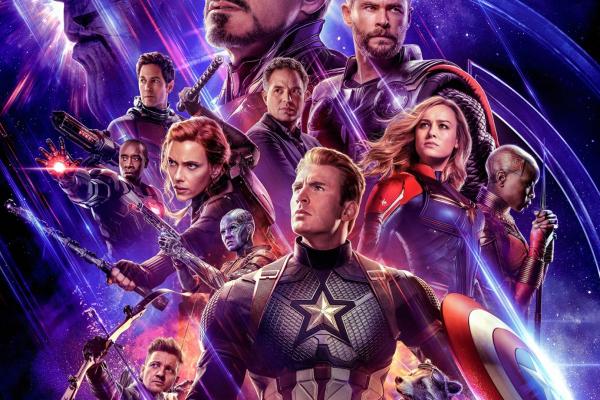Avengers: Endgame opens with a man noticing that his entire family has disappeared, not yet knowing that half the world has also been instantly wiped out. It’s quiet and terrifying. Half a decade later a support group meets to discuss their ongoing grief; a man speaks of his attempt at a first date, and how he and his dinner partner both cried at the continued reality of what has been wrought upon them. Those two scenes are compelling — it’s rare for large-scale action movies to attempt to meaningfully show the aftermath of destruction; the human realities of both one individual family, and entire nations are conveyed in those opening minutes. It feels … truthful? Alas, after that, Avengers: Endgame spends almost three hours pivoting between giving the truth and avoiding it.
The surprise is how many interesting notions it touches on: the cost of serving the common good, father-son reconciliation, choosing small and beautiful over successful and empty. (There’s also a mild smattering of comedy, and a couple of decent performances, not least Robert Downey Jr.’s Tony Stark, whose arc since the first Iron Man film is actually one of the more interesting emotional maturings in the movies.) The unsurprise is that Avengers: Endgame pivots between those notions and lazy foundational ideology: that the name of the game of life is ultimately kill-or-be-killed, that ordinary people don’t really matter, and that despite the selfish dimensions of our relationship with the planet, once we’ve eliminated our scapegoat-of-the-day, we can revert to business-as-usual without learning any lessons about either the earth or the consequences of thinking we can bomb our way to peace.
Twenty-two films into the Marvel Cinematic Universe (I’m never quite sure why they eliminate from that count the first three Spider-man movies and Ang Lee’s Hulk — a film so rich with psychological nuance, lovely performances, visual splendor and actual ideas that it’s the only one I want to see again), Iron Man, Captain America, Thor, Black Widow, et al., are living in the aftermath of the chilling ending of their previous outing, wherein cosmic bad guy Thanos wiped out half of all living creatures because he’s worried about what happens when folks run out of things to eat. He misperceives that there aren’t enough resources to go around, believing that a reset will allow for a world of abundance. Strange, then, that only those on two legs are shown — what about fish and trees? Never mind the fact that there are better ways to embrace the abundance that already exists, beginning with sharing; the movie isn’t interested in that kind of solution, favoring explosions rather than asking anything of its characters that might imply we the audience need to change the way we think about our own place in the ecosystem.
*
The perfect cinematic embodiment of the belief that violence cleanses is the climax of Jaws, when the monster is blown up, and the world created anew. Someone once asked me: What exactly would a nonviolent response to a man-eating shark look like ? It was a smart(ish) question, and I hope my response was thoughtful too: If you wait til the shark has come into shore before you figure out what you’re going to do about it, then all you’ve done is prove that humans tend to be short-term reactionaries rather than people interested in long-term wisdom. When threatened, we revert to immediate gratification rather than what might actually work for the common good. The reasons sharks eat humans is that we have over-fished in the deep sea; the way to prevent sharks eating people is to stop stealing their food.
That doesn’t make Jaws a bad film, just one that needs to be handled with care. But compared with Avengers: Endgame, Jaws is a paragon of subtlety — the characters on the boat feel like real people, whereas in Avengers: Endgame, there’s a strange lack of ordinary folks. For a movie that ostensibly deals with the destruction and reconstruction of half of humanity, there’s very little humanity in it. Perhaps what matters most positively about Avengers: Endgame is that it reveals some openness to a more evolved way of thinking: Its directors, Anthony and Jospeh Russo, make it LGBTQ-friendly and (somewhat) pro-women; at one point it hands a mantle of national leadership to a person of color; and the death of its villain (that’s not exactly a spoiler) is played mournfully rather than for gruesome catharsis. But it doesn’t take its audience’s minds as seriously as it takes itself, presenting a world in which Back to the Future exists but not caring enough to try to make anything like a credible case for the things over which it’s asking us to suspend disbelief.
I mean, I know it’s not the most exciting plot for a spandex ballet, but if you could go back in time to prevent a genocide, couldn’t you also go back in time to educate people about nonviolence, build democratic structures and restorative justice, and prevent the trauma that induced the bad guy to wipe people out in the first place?
Got something to say about what you're reading? We value your feedback!







